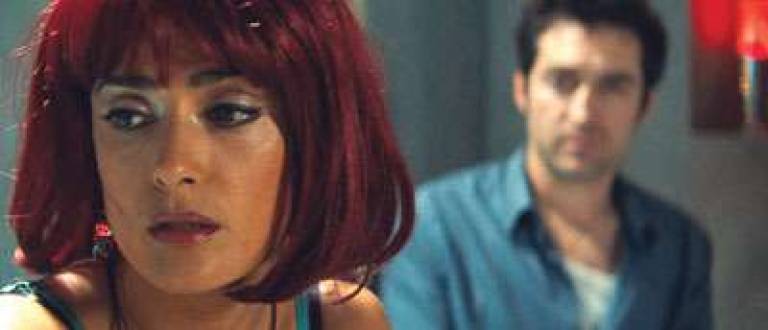Armond White: For Mathieu Demy, Art Is a Family Saga

In tabloid parlance, Mathieu Demy is cinema royalty. Son of the late, great French new wave director Jacques Demy (Lola, Bay of Angels, The Umbrellas of Cherbourg), he is also the son of Agnès Varda, the pioneering female director of the Left Bank who excels in fiction and nonfiction films (Vagabond, The Gleaners and I). Both parental legacies are honored by Mathieu Demy's directorial debut, Americano, a young man's exploration of his family heritage that has obvious autobiographical parallels but is also an extraordinary personal investigation. Demy himself plays Martin, a Frenchman who travels from Paris to Los Angeles, where his artist mother had relocated, to bury her and claim her estate. Pursuing more than his mother's paintings, Martin's fascination with his psychic heritage includes the cross-cultural fascination that American culture-the American ideal-has on European consciousness. This personalized story of political and sexual colonization is localized in the mystery of his mother's best friend, a woman named Lola (Salma Hayek). Martin traces her to Mexico, where he discovers a Latin American version of nouvelle vague cultural magnetism; Lola strips in a bar named Café Americano, feeling exiled from the opportunities and livelihood just beyond the border. For film students, Americano's odyssey parallels the journey that both Jacques Demy and Varda made when the cinèphile couple trekked to Los Angeles in the late 1960s. There, Varda directed the documentary Lions Love and Demy directed The Model Shop-the former examining a countercultural demimonde, the latter an extension of the cinematic mythology that began with the film Lola, Demy's own debut about the quest for love. For Lola's characters, Desire epitomized Faith. It is one of cinema's great humanist testaments, a farcical drama with a perfectly balanced narrative that plays as buoyantly as a musical. In Lola, a romantic young man (Marc Michel) courts a small-town taxi dancer played by Anouk Aimée who is also romanced by an American sailor. She awaits her first love's return from a mysterious U.S. sojourn driving a long white Cadillac. Americano feels more noir-like than Lola; its plot is less naïve but shows the difficulty of Euro-American relations many decades, artistic styles and social movements later. Mathieu Demy repurposes the figure of Lola as a figment of imagination, the key to understanding his parents' desires as well as his own-particularly his personal connection to human heritage. Hayek's Lola is a more powerfully erotic figure than that flighty Madonna the great Aimée embodied as an émigré who wound up posing for bawdy photos in The Model Shop. Americano's noir complexities are shadowed by the puzzle of parental sexuality. This has been a subtext in some of the docs Varda has made commemorating Jacques Demy's 1990 death from AIDS, and it is also interesting subtext in Americano. This film's cast includes a parade of second-generation cinema royalty: Geraldine Chaplin, Chiara Mastroianni and Carlos Bardem. Exploring love and desire as a family saga takes work of staggering sophistication and bravery, which Mathieu Demy accomplishes with honesty, imagination and redemptive brilliance. The troubled and perplexed Martin realizes a more complicated innocence-not naïveté-than a mere fanboy movie tribute. "I'll walk you home," he tells a Mexican urchin. Americano is, at last, a cinematic version of the famous Delmore Schwartz parent-cinema-child short story "In Dreams Begin Responsibilities." It is Demy's dedication to family heritage that turns his connection to a series of inherited clues and obligations into a film of genuine originality. To read the full review at City Arts [click here. ](http://cityarts.info/2012/06/19/the-son-also-rises/)